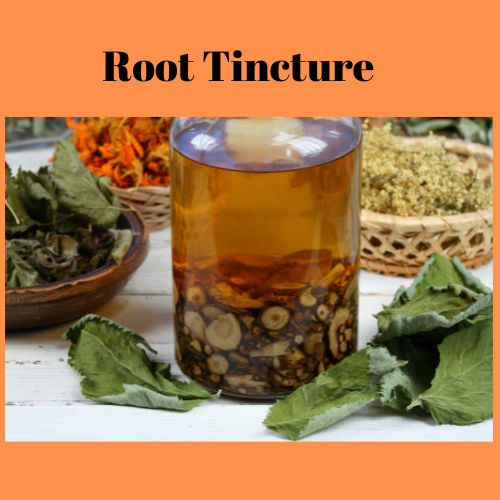The Ultimate Guide to Herbal Tinctures: Potent, Long-Lasting Herbal Extracts
Alcohol-Based & Alcohol-Free Tinctures for Maximum Herbal Benefits
Herbal tinctures are one of the most powerful and convenient ways to extract and preserve medicinal plant compounds. Whether made with alcohol for maximum potency or glycerin for an alcohol-free alternative, tinctures provide fast absorption and long shelf life—perfect for on-the-go herbal support.
In this guide, you’ll learn:
✔ The difference between alcohol-based and alcohol-free tinctures
✔ Step-by-step instructions for making your own herbal tinctures
✔ Best herbs for tinctures and their benefits
✔ Proper storage, dosage, and usage tips
Take control of your wellness with custom-made herbal tinctures—concentrated, effective, and made just for you!

Tinctures – Long-Lasting & Highly Potent Herbal Extracts
Why Use a Tincture?
✔️ Extracts the most medicinal compounds using alcohol
✔️ Shelf-stable for years – No refrigeration needed
✔️ Strong concentration – Small doses, high potency
How to Make an Herbal Tincture: A Step-by-Step Guide
Herbal tinctures are highly concentrated liquid extracts that preserve the medicinal properties of herbs for long-term use. Unlike teas and decoctions, tinctures use alcohol or glycerin to extract a plant’s active compounds, making them potent, fast-acting, and shelf-stable for years.
This guide will walk you through the best method for making your own herbal tincture, ensuring maximum potency and effectiveness.
Step 1: Choose & Prepare Your Herbs
✅ Select organic, high-quality dried or fresh herbs.
✅ If using fresh herbs, rinse and chop them finely.
✅ If using dried herbs, grind them lightly to increase surface area.
✅ Fill a glass jar halfway with dried herbs or two-thirds full with fresh herbs.
Pro Tip: Some of the best herbs for tinctures include:
- For Immunity: Echinacea, Elderberry, Andrographis
- For Relaxation & Sleep: Valerian, Passionflower, Lemon Balm
- For Digestion: Ginger, Fennel, Peppermint
- For Energy & Adaptogens: Ashwagandha, Rhodiola, Ginseng
Step 2: Add Alcohol or Glycerin
✅ Pour 80-100 proof vodka, brandy, or grain alcohol over the herbs until fully submerged.
✅ If making an alcohol-free tincture, use food-grade vegetable glycerin mixed with water (2:1 ratio).
✅ Seal the jar tightly and shake gently to combine.
Pro Tip: Alcohol extracts more medicinal compounds, while glycerin is better for children or alcohol-sensitive individuals.
 Step 3: Infuse & Shake Daily
Step 3: Infuse & Shake Daily
✅ Store the tincture in a cool, dark place for 4-6 weeks.
✅ Shake the jar once daily to redistribute the herbs and enhance extraction.
✅ Label the jar with:
- Herb name(s) & botanical name(s)
- Type of alcohol used (e.g., "Vodka 80-proof")
- Date of preparation
- Dosage instructions
Pro Tip: For a stronger tincture, let it infuse for up to 8 weeks before straining.
Step 4: Strain & Bottle the Tincture
✅ After the infusion period, strain the tincture through a fine-mesh strainer or cheesecloth into a clean bowl.
✅ Press the herbs to extract every drop of liquid.
✅ Pour the strained liquid into amber glass dropper bottles for storage.
Pro Tip: Amber glass protects the tincture from light exposure, preserving potency.
Step 5: Proper Storage & Labeling
✅ Store tinctures in a cool, dark place—they last 3-5 years or more.
✅ Clearly label each bottle with:
- Herb name(s) & botanical name(s)
- Date of preparation
- Suggested dosage (e.g., "Take 30 drops 2x daily")
- Any safety precautions (e.g., "Not for use during pregnancy")
Pro Tip: Always use a dropper for dosing—tinctures are highly concentrated!
Final Thoughts: Why Use Herbal Tinctures?
✅ Highly Potent & Long-Lasting – A few drops go a long way.
✅ Fast Absorption – Extracts enter the bloodstream quickly for rapid effects.
✅ Easy to Take – Mix with water, juice, or tea for convenience.
Making your own herbal tinctures allows you to customize blends, control purity, and save money compared to store-bought extracts.
Start today with high-quality herbs and craft your perfect herbal tincture!
Best Herbs for Tinctures:
- For Stress & Sleep: Valerian, Ashwagandha, Lemon Balm
- For Digestion: Ginger, Peppermint, Fennel
- For Immune Support: Echinacea, Elderberry, Andrographis

